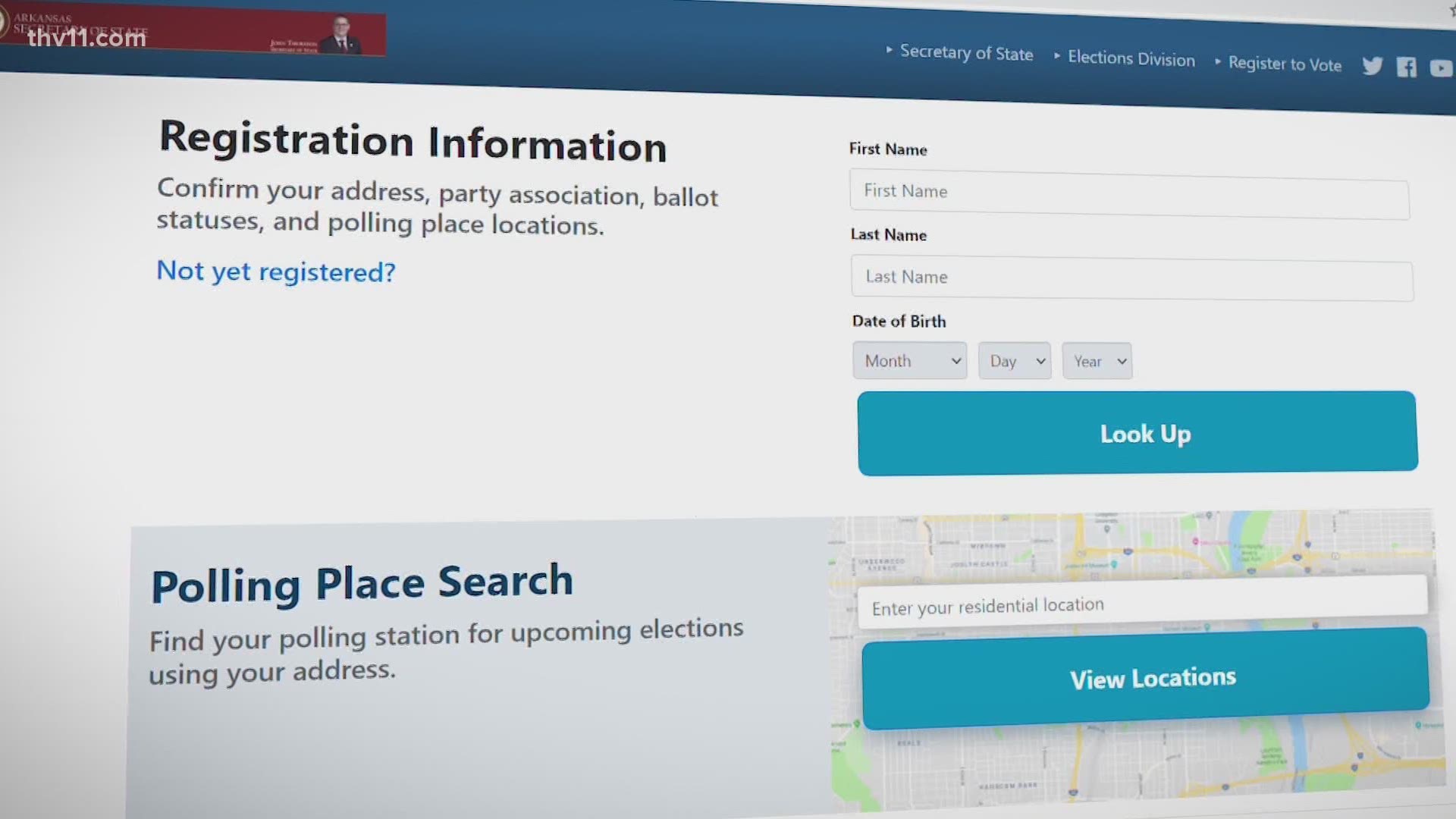LITTLE ROCK, Arkansas — Not only will voters elect candidates for federal, state and local offices, but they will get to decide on three ballot issues for the 2020 November general election.
Some areas will have various local taxes and school board elections on their ballots. But every Arkansan will get to vote on three measures on their ballots.
All three of the measures are constitutional amendments to the Arkansas Constitution.
Below you will find an explanation of the issue and what opponents and supporters of each measure think about it.
All of our data is attributed to the Arkansas Secretary of State and the Public Policy Center at the University of Arkansas Division of Agriculture.
Issue No. 1
An amendment to the Arkansas Constitution to continue a half-percent (0.5%) sales tax for state highways and bridges, county roads, bridges, etc. Read the full issue.
What does your vote mean?
For: You vote to raise the sales tax for state infrastructure projects.
Against: You vote against raising the sales tax.
Supporters of Issue No. 1 say:
- The tax will support 3,600 jobs and provide over $8 billion over 10 years.
- Helps pay for highways, bridges, etc. without creating a new tax; it is just adding to one that already exists.
Opponents of Issue No. 1 say:
- Arkansas Department of Transportation cannot oversee how many state transportation infrastructure that it has, and there will never be enough money to cover it all.
- A large portion of the funds will go to a project just in Little Rock, which will benefit a small group of residents in the state. ARDOT is currently being sued in state and federal courts for violating environmental and planning regulations on the particular project.
Issue No. 2
An amendment to the Arkansas Constitution to amend the term limits for members to twelve consecutive years for state legislators with the opportunity to return after a four-year break. Read the full issue.
What does your vote mean?
For: You vote to take away lifetime term limits for legislators, limiting their terms to 12 consecutive years when they're elected after 2020, and if they reach 12 years, they have to wait four more years to run again.
Against: You vote to maintain the current lifetime term limits of serving up to 16 years in the House.
Supporters of this amendment say:
- If you believe the government should be run like a business, it wouldn't make sense to fire the leadership of business after 12 years.
- Gives elected officials time to be experienced while still keeping term limits short enough.
Opponents of this amendment say:
- Actually extends term limits because it allows current legislators serving 16 years to sit out for four years after they reach the and then can run again for an additional 12 years.
- This removes the current limit and allows them to return just four years later.
Issue No. 3
A constitutional amendment to amend the process that goes into the submission, challenge, and approval of proposed legislation. Read the full issue.
What does your vote mean?
For: You vote to move dates when voter petitions are due, increasing the number of counties where voter signatures must be collected for all citizen-initiated petitions, etc.
Against: You vote not to change the current guidelines on the submission. challenge and approval of proposed legislation.
Supporters of Issue No. 3 say:
- Under the current guidelines, out-of-state interest groups have bought signatures in parts of the state with large populations with one predominant political ideology.
- The Arkansas Constitution is sacred and should not be easily changed by out of state interest groups.
Opponents of Issue No. 3 say:
- These measures makes it difficult to get citizen-led petitions on the ballot.
- If the supporters of the amendment really cared about changing the constitution, they would make it harder to refer amendments within the Arkansas House legislature, which is where 80% of amendments originated.
And although Issue No. 6 will appear on the ballots, the issue was blocked in a 6-1 ruling by the Arkansas Supreme Court.

